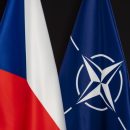Political parties, analysts, and even foreign ambassadors have for days been debating whether Serbia should withdraw or change its draft resolution on Kosovo. The foreign ministry submitted the document to the UN General Assembly on July 28th.
Upon review, Serbian officials acknowledged that the document was written hastily in order to pre-empt a resolution that could have favoured Kosovo's independence -- something Belgrade strongly opposes.
Serbia's resolution states that the International Court of Justice (ICJ)'s July 22nd advisory opinion, which found that Kosovo's independence declaration did not violate international law, does not give Kosovo Albanians the right to secession.
It adds that "unilateral secession is not an acceptable way to solve territorial issues" and calls for reaching a "mutually acceptable solution to all open issues" through dialogue.
British Ambassador to Belgrade Stephen Wordsworth said his country had been "surprised" by Belgrade's move and that the unilateral submission of Serbia's resolution could lead to a conflict with the EU during the debate at the UN.
British Ambassador to Belgrade Stephen Wordsworth said his country had been "surprised" by Belgrade's move and that the unilateral submission of Serbia's resolution could lead to a conflict with the EU during the debate at the UN.
"It doesn't make much sense for Serbia and the EU to confront one another in New York while at the same time Serbia claims it wants to become a member of the EU," Wordsworth said.
Controversy has now erupted in Serbia over whether the draft resolution should be changed or withdrawn. Foreign Minister Vuk Jeremic added fuel to the fire by saying that Serbia's chances of garnering support for its resolution in the UN borders "on the impossible".
He added, however, that Serbia had no option but to do everything it could to convince the world that its stance is the right one.
Two members of the ruling coalition -- the Serbian Renewal Movement and G17 Plus -- called on Serbia to change the resolution in agreement with the EU. "It would be better to change the text and garner the support of as many EU member countries as possible, rather than go after the votes of the non-aligned (in the UN General Assembly)," G17 Plus Deputy President Suzana Grubjesic said.
The opposition Democratic Party of Serbia (DSS), led by former Prime Minister Vojislav Kostunica, called for Jeremic's resignation and said that Belgrade should not have submitted the resolution to the General Assembly.
Political analysts are divided. Dusan Janjic, director of the NGO Forum for Ethnic Relations, told SETimes that Belgrade should do "everything to harmonise its draft resolution with the EU", and that in the current climate Belgrade should be "ready for defeat" at the autumn session of the UN General Assembly.
However, Aleksandar Mitic, head of the KosovoCompromise project, told SETimes that Belgrade could not agree with the United States and the EU because they were the "main proponents of Kosovo independence".
DSS spokesman Petar Petkovic told SETimes the draft should have instead been sent to the UN Security Council, where the country has two strong allies -- Russia and China."Serbia's chance of success in the UN General Assembly is minimal ... It is almost as if the government, after failing in the ICJ, also wanted to be unsuccessful in the UN, so that it could announce that it did everything possible to save Kosovo, but that they were unsuccessful," Petkovic said.
Political analysts are divided. Dusan Janjic, director of the NGO Forum for Ethnic Relations, told SETimes that Belgrade should do "everything to harmonise its draft resolution with the EU", and that in the current climate Belgrade should be "ready for defeat" at the autumn session of the UN General Assembly.
However, Aleksandar Mitic, head of the KosovoCompromise project, told SETimes that Belgrade could not agree with the United States and the EU because they were the "main proponents of Kosovo independence".
Mitic believes that Belgrade should reach agreement on the resolution with Russia and China, but also with countries that have influence over regional organisations, countries such as Egypt, South Africa, India, Indonesia and Brazil.





